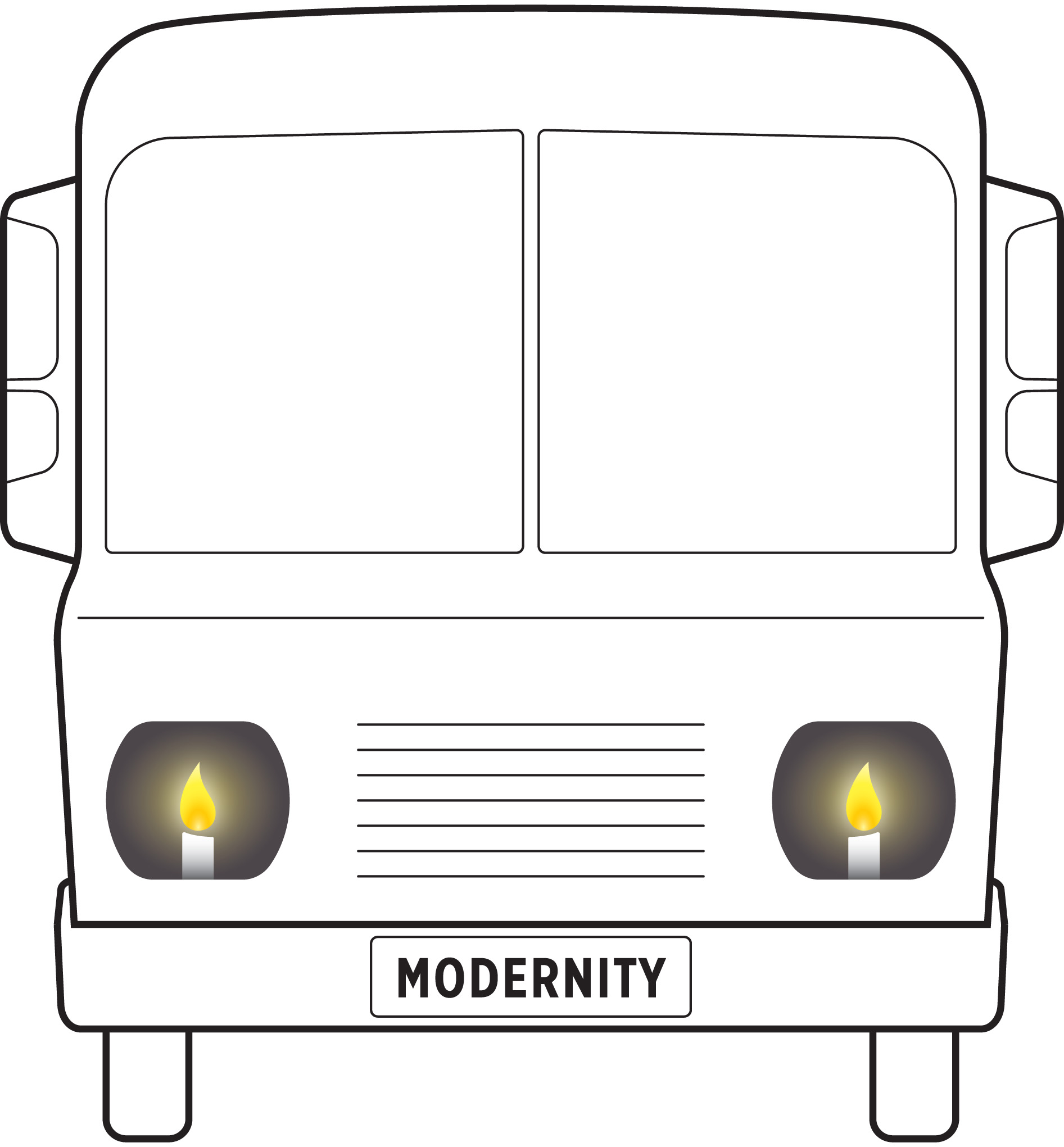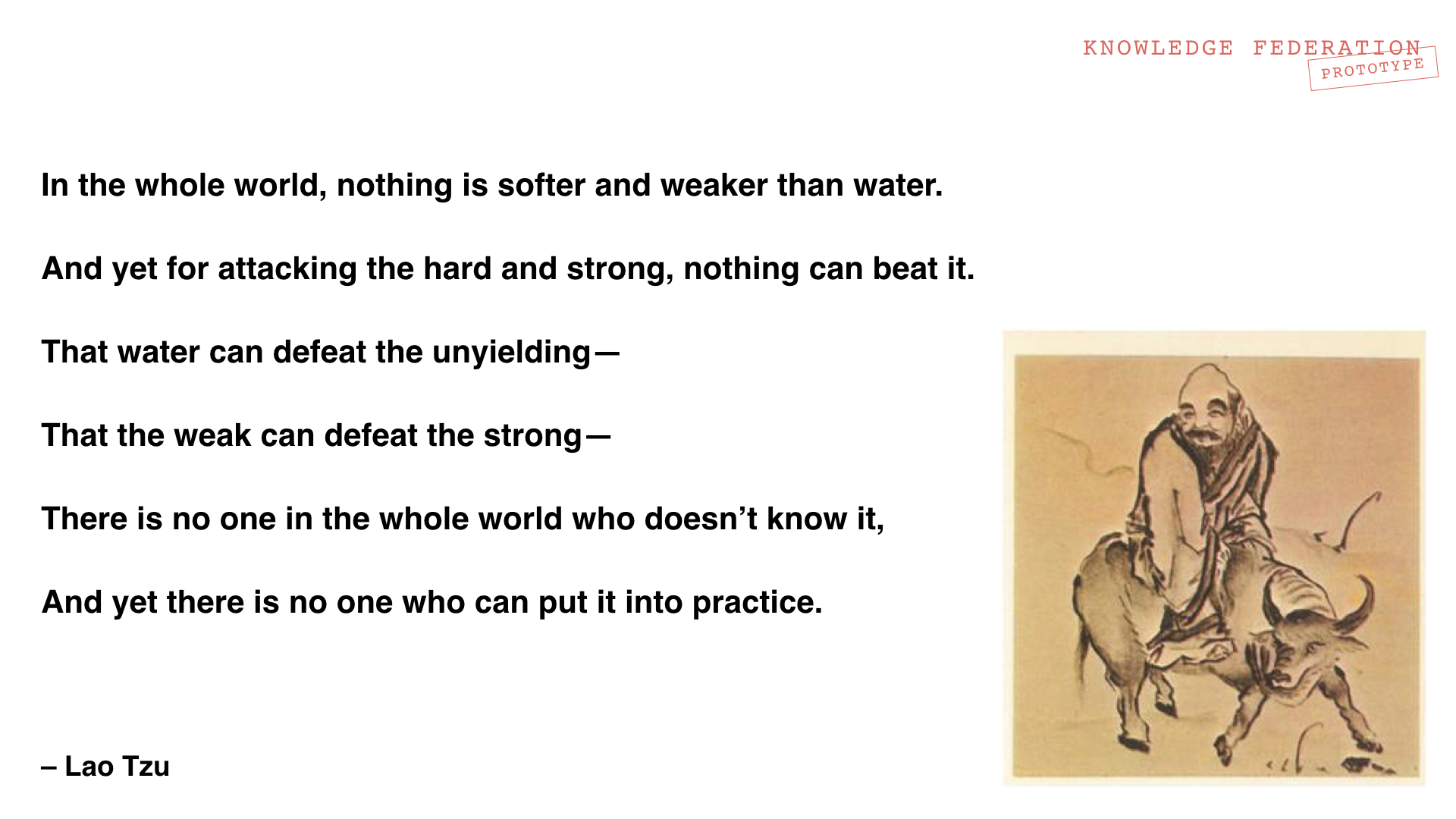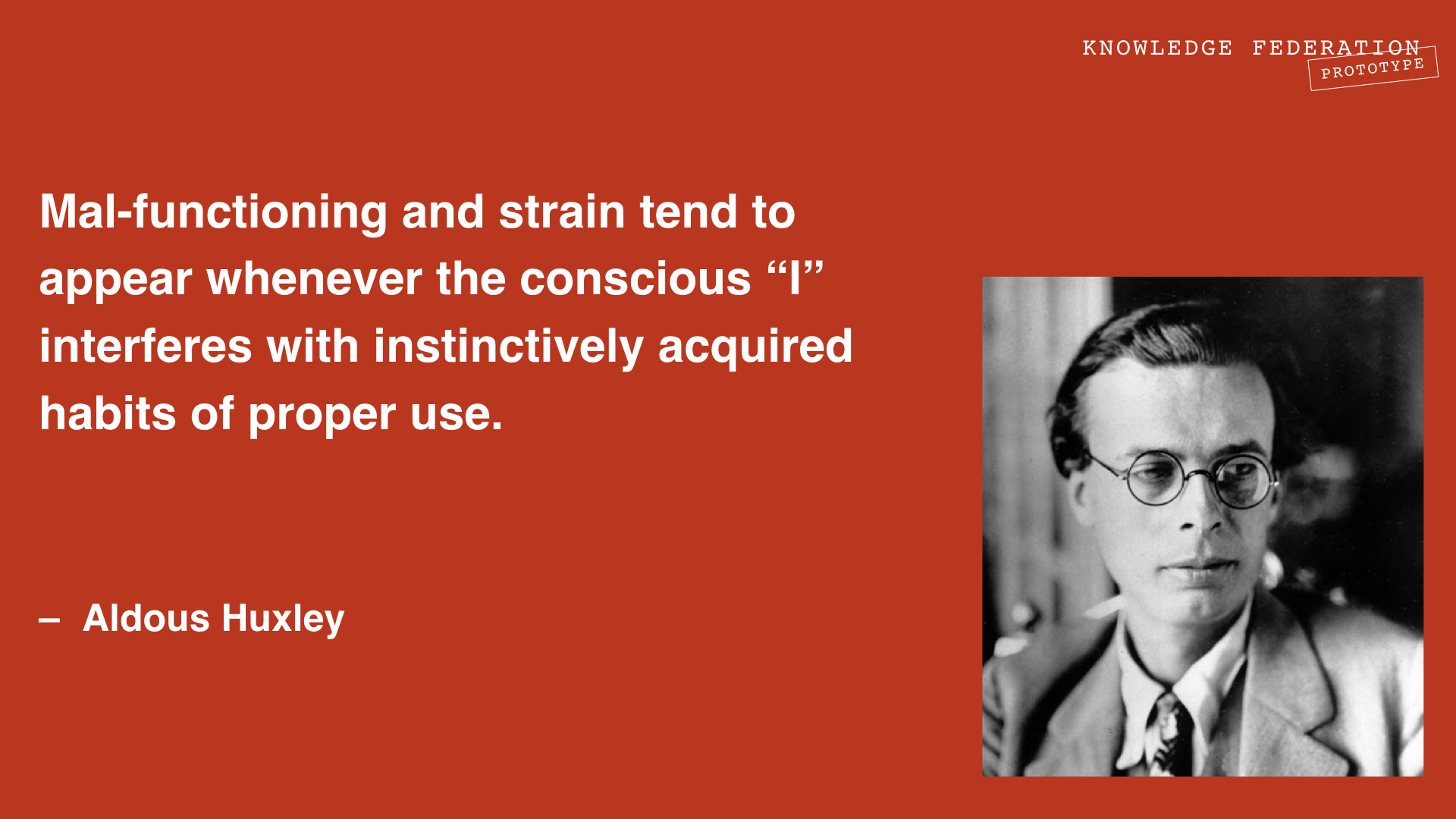Holotopia
Contents
HOLOTOPIA
An Actionable Strategy
Imagine...
You are about to board a bus for a long night ride, when you notice the flickering streaks of light emanating from two wax candles, placed where the headlights of the bus are expected to be. Candles? As headlights?
Of course, the idea of candles as headlights is absurd. So why propose it?
Because on a much larger scale this absurdity has become reality.
The Modernity ideogram renders the essence of our contemporary situation by depicting our society as an accelerating bus without a steering wheel, and the way we look at the world, try to comprehend and handle it as guided by a pair of candle headlights.
Scope
In this last of the five insights we take up perhaps the most interesting question that remained:
Why is "a great cultural revival" realistically possible?
Why is the holotopia a better alternative? What is to be gained by "changing course"—and instead of reaching out for all the fun and pleasurable things that an advanced material civilization has to offer—engage in something as elusive and distant as "human development"?
In Galilei's time, concern with the "original sin" and "eternal punishment" were soon to be replaced; happiness and beauty would be lived here and now, and elevated and celebrated by the arts. What might the next "great cultural revival" be like?
Diagnosis
We (the power structures we compose) have done the same to culture and to ourselves, as we did to natural environment.
With one notable difference.
We do not have 'a science of culture'—which would give us the equivalent of the temperature and the CO2 measurements, so that we may even hope to turn this into an issue!
By looking at the world through the narrow frame, by seeing the world as a machine and focusing on immediate causality, we have made convenience (or "instant gratification") the value that orients our private pursuits; and egotism (or "egocenteredness") the value that orients our social ones.
Our point here will be that this is not only leading us into a trap through the social and natural "feedback loops", as we have already seen—but also directly, by separating us from the kind of happiness and fulfillment that only culture, and "human development" can lead to.
Remedy
Here too there is an insight, a rule of thumb, that reverses our "pursuit of happiness" quite thoroughly; and leads us to a realm of fulfillment that most of us consider possible.
We've called it "the best kept secret of human culture", and offered it for dialog and elaboration as one of our selected ten themes.
Long story short—there is an incomparably better way to be human, than what we've known and experienced.
This is what attracted our distant ancestors to persons like the Moses, the Buddha, the Christ or Mohammad. Yet always—the power structure managed to divert the way they were pointing to into something quite different, and at not rarely into its very opposite!
So what can we do that is different?
We can introduce knowledge of knowledge; offer, and teach information about information. We can create a communication channel, which is wide enough and clear enough for these things to be seen!
As soon as we begin to do that, to federate suitable insights to illuminate that realm of possibilities, the convenience paradox is clearly seen.
The convenience paradox insight is that convenience is a deceptive and useless value, behind which enormous cultural opportunities have remained hidden. The idea of a "couch potato" provides a common-sense illustration—but, we show, the depth and breadth of possibilities for improving our condition through long-term cultivation is beyond what most of us will dare to consider possible.
Human wholeness does exist; and it feels, and looks, incomparably better than most of us will dare to imagine. It is this that drove people to the Buddha, Christ, Mohammed and other founders of religion. We represent them all here by Lao Tzu, who is often considered the founder of "Taoism". "Tao" literally means "way". The point here is to develop one's way of live, and culture, based on on where the way is leading to—and not (only) based on how attractive a direction may feel at the moment.
The most fascinating insight is reached as soon as we ignore the differences in worldview, what the adherents of different religion "believe in"—and pay attention to the symbolic environment they produce, and the kind of values and way of being they nourish. Compare, for instance, the above Lao Tzu's observations with what Christ told his disciples in the Sermon on the Mount.
Most interestingly, even a superficial federation (when we no longer focus on what religious traditions "believe in", but on the symbolic environments they create and the values they promote) the transcendence of egotism is a key element of the "way".
Lao Tzu is often pictured as riding a bull, which signifies that he conquered and tamed his ego. We here quote Aldous Huxley, to point out that transcending egotism is so much part of our wholeness, that even physical effort and effortlessness—which we now handle exclusively by developing the technology—is conditioned by it.
Motivation: Bauman's "Cuture as praxis". Definition of culture as "cultivation of wholeness.
Definition of religion as "reconnection with archetypes".
The book "Liberation" subtitled "Religion beyond Belief" is an ice breaker. It federates "the best kept secret", and creates a dialog.
Movement and Qi is a template how to put the language of "movement" (doing something with the body) into the academic repertoire. And how to put the heritage of the world traditions such as yoga and qigong into academic repertoire.



